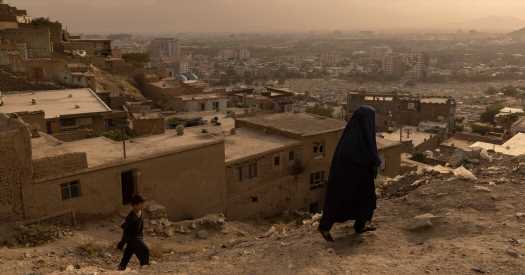
Blinken braces for a congressional grilling on Afghanistan.
Congress has its first opportunity on Monday to publicly press President Biden’s secretary of state on the American withdrawal from Afghanistan, which left behind several hundred U.S. citizens and thousands of Afghan allies after the Taliban seized control last month and 20 years of American-led efforts to stabilize the country collapsed.
At a House Foreign Affairs Committee hearing set for Monday afternoon, Secretary of State Antony J. Blinken is certain to point to the evacuations of more than 50 Americans over the last several days as proof that the Biden administration will continue to rescue people from Afghanistan as the Taliban sets up its new government in Kabul.
Mr. Blinken likely will also note the nearly $64 million in humanitarian aid that the U.S. Agency for International Development announced Monday for relief agencies working in Afghanistan. Ninety percent of Afghans are living on less than $2 each day, according to the International Rescue Committee, and the looming threat of financial sanctions against the Taliban could further doom Afghanistan’s economy.
But it is doubtful that will blunt the criticism by some lawmakers who have pointed to renewed terror threats, a botched visa processing system and the setback of Afghan women’s rights in demanding answers for why a military withdrawal that was 18 months in the making turned into a deadly crisis.
“The preparations for this thing, and the failure of imagination on how fast it would happen and how complete the collapse — that’s a problem that you have to point to the administration on,” James F. Jeffrey, a former ambassador who worked closely with Mr. Blinken and other senior officials during the Obama administration, said on Monday.
Mr. Jeffrey said the overall decision to withdraw from Afghanistan “made good sense,” in part because the administration is also grappling with a range of more immediate threats to the United States, like China, Russia, climate change and the coronavirus. He also suggested that the majority of Afghans did not support the West’s vision for Afghanistan, or at least how it was being carried out by Afghan leaders in Kabul, and “therefore, there was no solution to this struggle.”
The Biden administration has pledged that diplomatic efforts will continue, but from Doha, the capital of Qatar, and that so-called “over the horizon” strikes will keep terrorists from gaining ground in Afghanistan. The Taliban has agreed to refuse refuge to terror groups as a condition of the U.S. military withdrawal from Afghanistan, which was brokered during the Trump administration.
However, it is widely believed that Al Qaeda’s most senior leader, Ayman al-Zawahri, is currently living in Afghanistan, which means “the Taliban is harboring Al Qaeda today,” Michael J. Morell, a former deputy and acting director of the C.I.A., told the CBS News program “Face The Nation” on Sunday. “I think that’s a very important point,” Mr. Morell said.
Top C.I.A. officials, including William J. Burns, the agency’s director, have acknowledged that they are looking for new ways to collect information in Afghanistan, and that their ability to gather information on terrorist activity is diminished.
Even Democrats who supported Mr. Biden’s decision to end the 20-year war have said they viewed the withdrawal with mixed feelings.
The vast number of American citizens, legal U.S. permanent residents, and Afghan allies who were not evacuated before the military departed on Aug. 30 are now vulnerable to Taliban “targets on their backs,” said Senator Richard Blumenthal, Democrat of Connecticut.
He said the State Department had “perhaps taken more time than was necessary” to pressure the Taliban into allowing people to leave Afghanistan on chartered flights from Kabul and the northern city of Mazar-i-Sharif.
“We’ve lost time precious time,” Mr. Blumental said on a call with reporters on Friday. “The situation of these individuals is desperate and urgent.”
Over the last two weeks, Mr. Blinken and other U.S. diplomats have urged allies in the region to restart commercial flights from the Kabul airport, which was badly dilapidated after the mass evacuation efforts, so that people with valid travel documents could leave.
The Taliban has agreed to let American citizens and residents depart, following a barrage of negotiations with U.S. officials. But the group has blocked Afghans — many of whom were stranded without proof of their employment with the American government when the U.S. Embassy in Kabul closed on Aug. 15.
Mr. Blinken has vowed that the United States would continue to pressure the Taliban to ensure safe passage for anyone who wants to leave Afghanistan. But the State Department has not said how it will provide clearances for tens of thousands of Afghans who worked for the government, and therefore qualify for special immigrant visas.
Mr. Blinken will have two days to make the administration’s case — before the House panel on Monday and in front of the Senate Foreign Relations Committee on Tuesday.
Source: Read Full Article